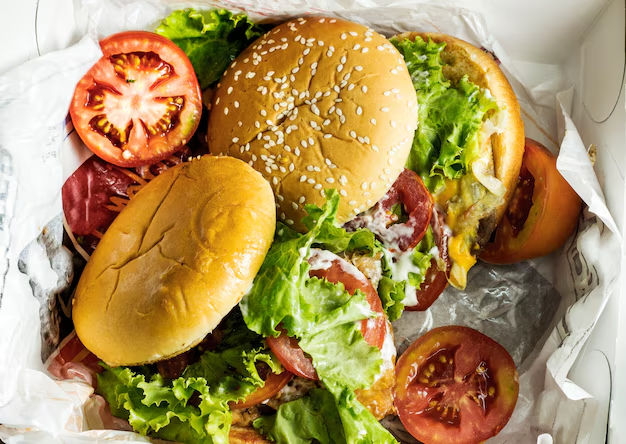How Long Can You Keep Cooked Hamburger in the Refrigerator?
Few things rival the convenience of having leftovers, especially when it comes to something as versatile and beloved as a hamburger. Whether it's the remnants of a backyard barbecue or the meal prep you did for the week, knowing how long cooked hamburger lasts in the refrigerator is essential to maximizing both flavor and food safety. In this comprehensive guide, we’ll dive into everything you need to know about storing your cooked hamburger safely, while giving you the context and additional tips to keep your meals delicious and nutritious.
🥩 Understanding the Lifespan of Cooked Hamburger in Your Fridge
Cooked hamburger can last in the refrigerator for about 3 to 4 days. However, this estimated timeframe can vary depending on a few critical factors like storage, temperature, and the initial freshness of the meat. Understanding these variables can help you make informed decisions about your leftovers.
The Ideal Storage Temperature
Refrigeration slows down bacterial growth, which is key to preserving food safely. For cooked hamburger, ensure your fridge is set to 40°F (4°C) or lower. This temperature inhibits bacteria that can cause foodborne illnesses. Use a reliable thermometer to monitor your refrigerator's temperature to maintain optimal conditions.
Proper Storage Techniques
- Use Airtight Containers: Store cooked hamburger in airtight containers to prevent exposure to air and moisture, both of which can accelerate spoilage.
- Label and Date: Write the date when the hamburger was cooked on the container. This practice helps you keep track of the time limits effectively.
- Separate Portions: If you've cooked a large batch, separate it into smaller portions. This not only helps in cooling them faster but makes reheating portions easier.
🧊 Freezing: A Longer-Term Solution
If you anticipate not consuming your cooked hamburger within four days, freezing is an excellent alternative. Frozen cooked hamburger can last for up to 4 months if stored properly. This extended lifespan makes freezing a great option for those who like to cook in bulk.
Steps for Freezing Cooked Hamburger
Cool Before Freezing: Allow the hamburger to cool entirely before wrapping. Placing hot food directly in the freezer raises the overall temperature, risking the safety of nearby foods.
Wrap it Right: Use freezer bags or heavy-duty aluminum foil to wrap the hamburger tightly. By removing as much air as possible, you minimize the chances of freezer burn.
Label and Date Again: Label the packaging with the date of freezing to help you remember shelf-life recommendations.
Reheating for Optimal Quality
When you're ready to enjoy your frozen leftovers, the method of reheating can affect both taste and texture.
- Defrost Safely: Move the hamburger from the freezer to the fridge the night before consumption to defrost it safely.
- Heat Thoroughly: Use a food thermometer to ensure the internal temperature reaches at least 165°F (74°C) when reheating, killing any bacteria that may have grown during storage.
🕵️♀️ Recognizing Signs of Spoilage
Preventing foodborne illness involves recognizing when your hamburger is no longer safe to consume. Here are some indicators that your cooked hamburger might have spoiled:
- Unpleasant Odor: One of the most apparent signs of spoiled hamburger is a sour or rancid smell.
- Color Changes: While some color change is normal due to oxidation, drastic discoloration can indicate bacterial growth.
- Texture Issues: If the hamburger feels slimy or sticky to the touch, it's best to dispose of it.
🍽️ Quick Tips for Ensuring Quality:
- Always trust your senses. When in doubt, throw it out!
- Practice the "First In, First Out" method. Use older produce and meats before newer supplies.
🍔 Enhancing Your Hamburger Experience
Now that we've covered the logistics of storage and safety, let’s make the most of your cooked hamburger.
Creative Uses for Leftover Cooked Hamburger
Transform your leftovers into a new culinary creation using these innovative ideas:
- Hearty Soups and Stews: Add your cooked hamburger to vegetable or bean soups for added protein.
- Quick Stir-Fries: Pair with fresh vegetables and sauces for a fast, satisfying meal.
- Homemade Tacos: Use as a filling alongside your favorite toppings for a taco night.
Elevating Flavor and Enjoyment
Enhancing the taste of your reheated hamburger can sometimes feel challenging. Here are some seasoning and flavoring ideas to keep it exciting:
- Herbs and Spices: Experiment with different herbs like thyme or rosemary for a new twist.
- Sauces and Marinades: Lightly toss your reheated hamburger with barbecue sauce or teriyaki glaze for added moisture and flavor.
📜 Summary: Keep It Safe and Enjoy It!
👉 Here's a quick rundown of tips to ensure your cooked hamburger stays safe and delicious:
- Store cooked hamburger in the fridge up to 4 days. Always check the refrigerator's settings to ensure it's at or below 40°F (4°C).
- Consider freezing for long-term storage, up to 4 months. Proper wrapping and labeling are key.
- Be alert for spoiler signs, like smells and textures. Trust your senses.
- Get creative with leftovers! Turn them into new, delicious meals.
By following these guidelines, you'll not only ensure your leftovers are safe to eat but also consistently delicious. Whether eaten as a classic burger or repurposed into another dish, cooked hamburger can be as varied as your imagination allows. With storage mastered, all that's left is to enjoy your meal! 🍔
This comprehensive guide explores not just the lifespan of cooked hamburger in the refrigerator but also introduces related subtopics like freezing, spoilage recognition, and creative culinary tips, tying everything into a helpful, reader-friendly package.

